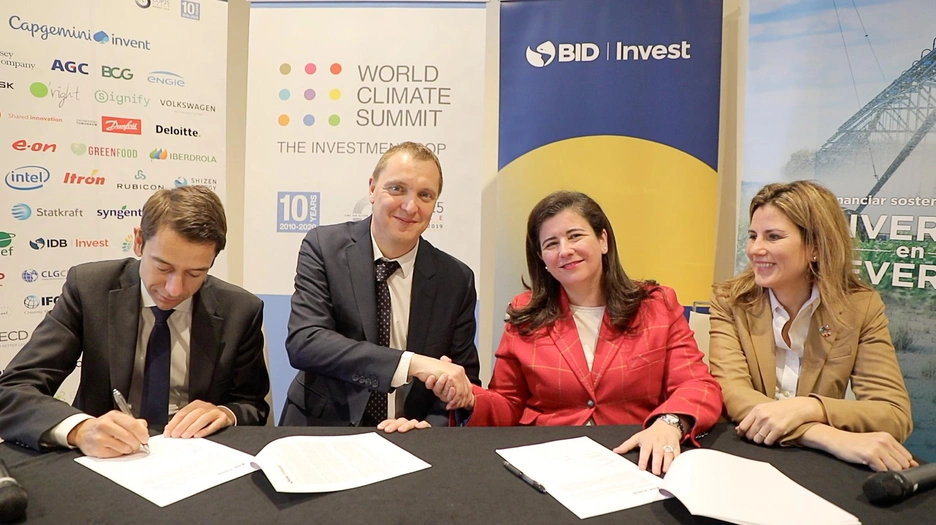IDB Invest signs an agreement for the first financial pilot to decarbonize power plants

- The agreement will be implemented in Chile and will support the country's emissions reduction plan
IDB Invest, a member of the Inter-American Development Bank (IDB) Group, announces the signing of the world's first monetization of absolute emission reduction activities in the energy sector under the Paris Agreement. The agreement, signed together with the French company ENGIE Energía Chile, a subsidiary of the ENGIE Group, and backed by the Climate Investment Funds (CIF) Clean Technology Fund, will generate economic benefits by shortening the timeframe for decarbonization in Chile.
Monetizing the reduction in emissions consists in putting a value on the greenhouse gas emissions that are avoided, as a result of the early withdrawal of a thermal coal power plant. Due to the decommissioning of the plant, the remaining plants would increase their generation and emissions. The decommissioning of the thermoelectric plant would be complemented by new renewable energy plants of similar power generation.
In the absence of a carbon credit market, this monetization translates into a lower financial cost from which the companies that own the thermoelectric plants benefit from investing in renewable energy. Under this pilot, IDB Invest would support the financing of investment in renewable energy plants. In this case, the closure of two of the coal-based plants that ENGIE has in Chile could be encouraged, which would reduce up to 1.2 million tons of CO2.
Chile launched its ‘Energy Route’ program to decarbonize its energy matrix in May 2018. The program includes chronological planning to convert or deactivate its coal plants and cost measurement to incorporate electromobility into the energy matrix. The plan was developed based on a dialogue between the government, the owners of coal-fired power plants, workers' unions, the academic sector of the affected municipalities and civil society.
The emission reduction is directly related to Article 6 of the Paris Agreement, which establishes a cooperation mechanism to facilitate the achievement of the reduction objectives. In particular, Article 6.4 establishes the basis for an emissions trading system, which would allow the creation of a global carbon price. The objective is to establish a Sustainable Development Mechanism, through which interchangeable CO2 credits could be commercialized between countries and between private sector companies.
About IDB Invest
IDB Invest, a member of the Inter-American Development Bank (IDB) Group, is a multilateral development bank committed to promoting the economic development of its member countries in Latin America and the Caribbean through the private sector. IDB Invest finances sustainable enterprises and projects to achieve financial results that maximize economic, social and environmental development for the region. With a portfolio of assets of $12.4 billion under management and 342 clients in 24 countries, IDB Invest works across sectors to provide innovative financial solutions and advisory services that meet the needs of its clients.
About ENGIE Energía Chile
ENGIE Energía Chile is part of ENGIE, a global and multidisciplinary group, present in 70 countries and a leader in efficient and innovative energy solutions. In Chile, it has vast experience in the generation, transmission and supply of electricity and is also present in the natural gas business. It currently offers a complete range of energy solutions for such important industries as mining, large and medium-sized companies, and multiple territories.
About the Climate Investment Funds (CIF)
With more than ten years of climate action, the $8.3 billion Climate Investment Funds (CIF) are one of the world's largest multilateral climate finance instruments. CIF provides developing countries with climate-resistant and low-carbon development financing. These grants, loans under favorable conditions, risk mitigation instruments and capitalization leverage significant additional financing from the private sector, multilateral development banks (MDBs) and other sources. Five MDB: the African Development Bank (AfDB), the Asian Development Bank (ADB), the European Bank for Reconstruction and Development (EBRD), the Inter-American Development Bank (IDB) and the World Bank Group (GBM), implement projects funded by CIF and programs.
